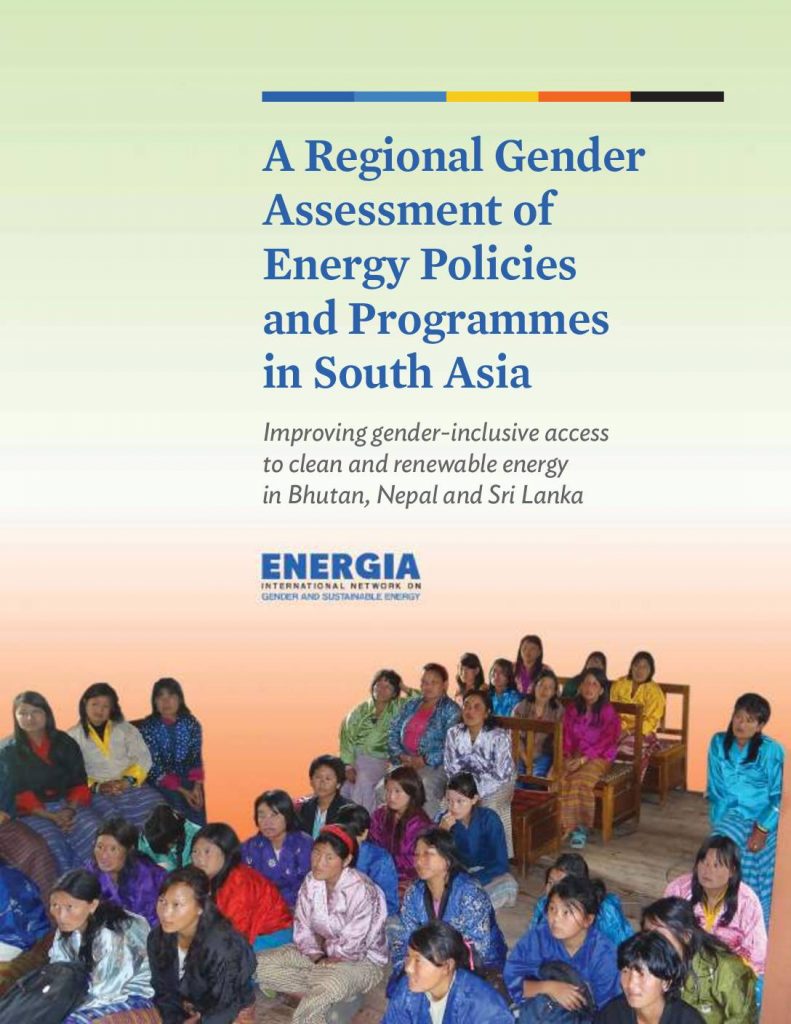Improving Gender-Inclusive Access to Clean and Renewable Energy in Bhutan, Nepal and Sri Lanka is an Asian Development Bank (ADB)-supported project (JFPR Grant-9158 REG). The project aimed to increase rural poor women’s access to affordable and reliable clean energy sources and technologies in selected project sites in Bhutan, Nepal and Sri Lanka. It was implemented by ENERGIA, the International Network on Gender and Sustainable Energy, in collaboration with the Royal Society for Protection of Nature (RSPN) in Bhutan; Centre for Rural Technology Nepal (CRT/N); and Practical Action Sri Lanka. ENERGIA is an international network working on training, research and institutional development in the area of gender and sustainable energy.
The project had three components: Component A was a gender review of the energy sector; Component B consisted of direct interventions supporting gender-inclusive access to energy and energy-based livelihoods; and Component C was the designing and use of a project performance management system. As part of Component A, gender reviews of national energy sector policies and programmes in the three DMCs were undertaken. These were complemented with a Regional Review, including lessons from the three assessments and from other South Asian countries. The Regional Review assessed the gender inclusiveness of the energy sector at three levels: policy, programmes and organisations. The review largely focused on electricity access, including grid extension and off-grid electrification options, though experiences in other sectors were also assessed, primarily to identify good practices that could be applied to the electricity sector.
The regional gender review was undertaken by Soma Dutta and Sheila Oparaocha, and reviewed by Govind Kelkar, Indira Shakya and Anoja Wickramasinghe. The team would like to acknowledge the support and inputs from the Asian Development Bank and the Department of Renewable Energy, within the Ministry of Economic Affairs and Bhutan Power Corporation limited) (BPCL), Bhutan; Nepal Electricity Authority (NEA); and the Ceylon Electricity Board, Sri Lanka.

Follow us on: